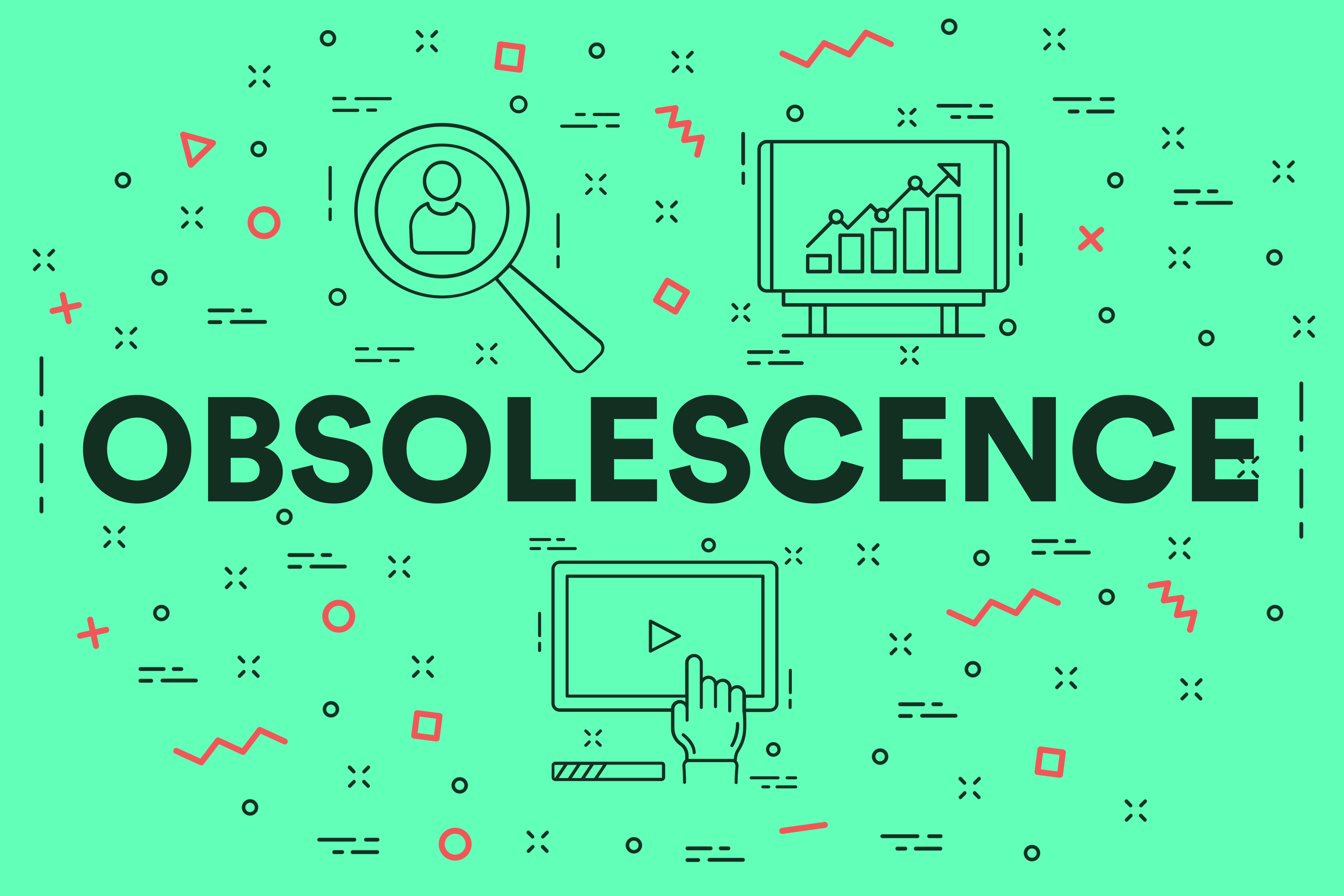Apple's AI Crossroads: Innovation Or Obsolescence?

Table of Contents
Apple's Current AI Landscape
Apple's AI presence is undeniably significant, yet its strategy presents both strengths and weaknesses. Let's analyze the key aspects of Apple's current AI capabilities.
Siri's Limitations
Siri, Apple's virtual assistant, while integrated seamlessly into the Apple ecosystem, lags behind competitors like Google Assistant and Amazon Alexa in several key areas.
- Lack of proactive assistance: Siri primarily responds to direct commands rather than proactively offering helpful suggestions or anticipating user needs.
- Limitations in complex tasks: Siri struggles with multi-step instructions and complex queries, often requiring multiple interactions to achieve a simple outcome.
- Dependence on internet connectivity: Many Siri features rely heavily on internet access, limiting functionality in areas with poor connectivity.
- Weaknesses in natural language understanding: Siri's understanding of nuanced language and context is less sophisticated than its competitors, leading to frequent misunderstandings and inaccurate responses. For instance, while Google Assistant might understand the context of a follow-up question about a previously mentioned restaurant, Siri often requires re-stating the entire request.
These limitations highlight the need for significant improvements to elevate Siri to the level of its more advanced competitors.
Apple's Focus on Privacy
Apple's unwavering commitment to user privacy is a defining characteristic, and it significantly shapes its AI strategy. This approach involves:
- On-device processing: Apple prioritizes processing data locally on devices whenever possible, minimizing the amount of data sent to its servers.
- Limitations on data collection: This privacy-focused approach restricts the volume of data collected, which is crucial for training sophisticated AI models.
- Impact on AI model training and performance: While privacy is paramount, the reduced data availability compared to competitors like Google may hinder the development of more advanced AI models.
- Trade-off between privacy and functionality: This inherent tension between prioritizing user privacy and delivering highly functional AI features is a central challenge for Apple.
While the privacy-first approach resonates strongly with many users, it creates a complex challenge for Apple in developing highly competitive AI services.
Machine Learning in Apple Products
Apple leverages machine learning (ML) effectively in various products:
- Photo editing: Features like automatic enhancements and object recognition rely on advanced ML algorithms.
- Health features: Apple Watch's heart rate monitoring and fall detection utilize ML for improved accuracy and efficiency.
- Personalized recommendations: The App Store and Apple Music utilize ML to suggest relevant apps and music based on user preferences.
These examples demonstrate Apple's effective use of ML, although the sophistication and breadth of these applications still trail behind the more comprehensive integrations seen in some competitor products.
Competitive Analysis: Google, Microsoft, and Others
Apple faces stiff competition from established AI powerhouses.
Google's AI Dominance
Google's extensive AI capabilities are unparalleled.
- Google Assistant's strengths: Google Assistant boasts superior natural language processing, proactive assistance, and seamless integration across Google's vast ecosystem.
- Integration with other services: Google Assistant's integration with Google Search, Maps, Calendar, and other services creates a highly cohesive and powerful user experience.
- Advanced AI research: Google is at the forefront of AI research, consistently pushing the boundaries of what's possible.
- Vast data resources: Google's enormous datasets are a crucial asset in training highly accurate and sophisticated AI models.
This dominance presents a considerable challenge for Apple.
Microsoft's AI Investments
Microsoft aggressively invests in AI, particularly through Azure and Windows integration.
- Microsoft's cloud AI offerings: Azure provides a powerful platform for developing and deploying AI applications.
- Integration with Office products: Microsoft integrates AI into Office 365, enhancing productivity with features like intelligent suggestions and automated tasks.
- Partnerships in AI research: Microsoft collaborates extensively with leading research institutions and companies to advance its AI capabilities.
This strategic approach strengthens Microsoft's position in the AI market.
Emerging Competitors
Other significant players, including Amazon, Meta, and numerous startups, continue to innovate in the AI space, posing a further challenge to Apple's AI aspirations.
Apple's Future AI Strategy
Apple's success hinges on its ability to adapt and innovate in the AI arena.
Potential Breakthroughs
Several areas could lead to significant advancements for Apple's AI:
- Improvements to Siri: Enhanced natural language understanding, proactive assistance, and improved contextual awareness are crucial for Siri's competitiveness.
- Development of new AI-powered features: New AI-driven features could enhance existing products or create entirely new offerings.
- Advancements in on-device machine learning: Further improvements in on-device ML could enhance privacy while maintaining or improving performance.
- Potential for new AI-focused hardware: New hardware specifically designed for AI processing could significantly boost Apple's AI capabilities.
Acquisition and Partnerships
Strategic acquisitions of smaller AI companies or forging partnerships with AI research institutions could significantly accelerate Apple's progress.
The Importance of Talent Acquisition
Attracting and retaining top AI talent is paramount for Apple to compete effectively in the long term.
Conclusion
Apple's current AI landscape reveals a company with strong fundamentals but facing significant competitive pressure. While its privacy-focused approach resonates with users, it also presents challenges in developing highly advanced AI capabilities. Apple's future success in AI depends heavily on its ability to overcome these challenges through strategic investments, acquisitions, talent acquisition, and breakthroughs in core technologies. Will Apple's approach ultimately lead to innovation or obsolescence? Only time will tell. What do you think is the future of Apple's AI? Share your thoughts on Apple AI strategies and Apple's future in AI; let's discuss Apple's AI development in the comments below.

Featured Posts
-
 El Salvador Prison Transfers Jeanine Pirros Stance On Due Process Rights
May 09, 2025
El Salvador Prison Transfers Jeanine Pirros Stance On Due Process Rights
May 09, 2025 -
 Rio Ferdinands Champions League Pick Arsenal Or Psg His Prediction Revealed
May 09, 2025
Rio Ferdinands Champions League Pick Arsenal Or Psg His Prediction Revealed
May 09, 2025 -
 Pakistan Economic Crisis Imf Review Of 1 3 Billion Package And Geopolitical Implications
May 09, 2025
Pakistan Economic Crisis Imf Review Of 1 3 Billion Package And Geopolitical Implications
May 09, 2025 -
 Draisaitl Injury Edmonton Oilers Playoff Hopes Hinge On Star Centers Recovery
May 09, 2025
Draisaitl Injury Edmonton Oilers Playoff Hopes Hinge On Star Centers Recovery
May 09, 2025 -
 Wireless Mesh Networks Market To Expand Significantly 9 8 Cagr Analysis
May 09, 2025
Wireless Mesh Networks Market To Expand Significantly 9 8 Cagr Analysis
May 09, 2025
